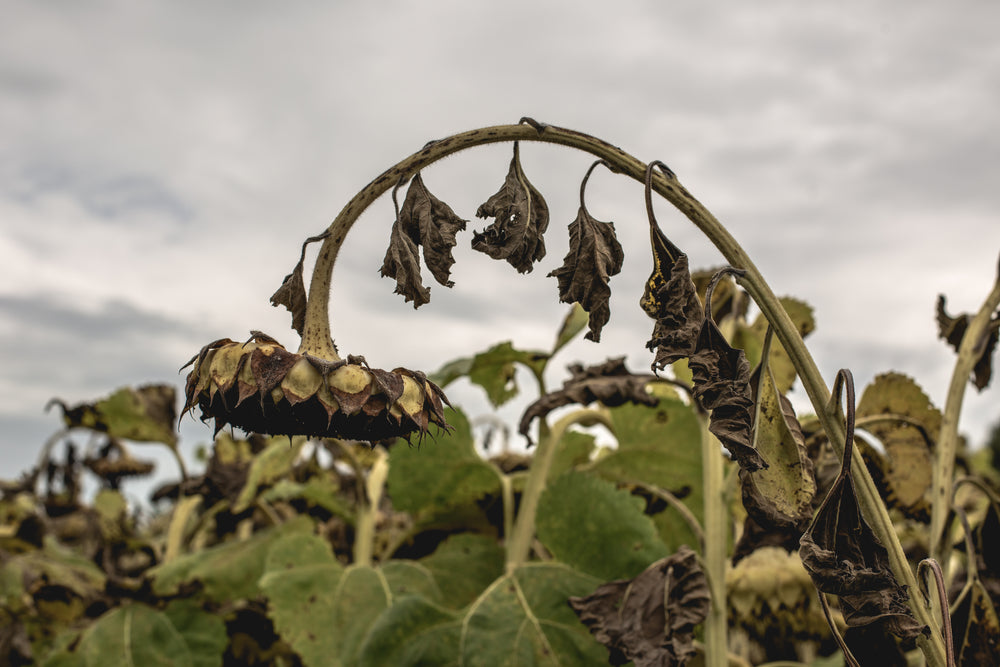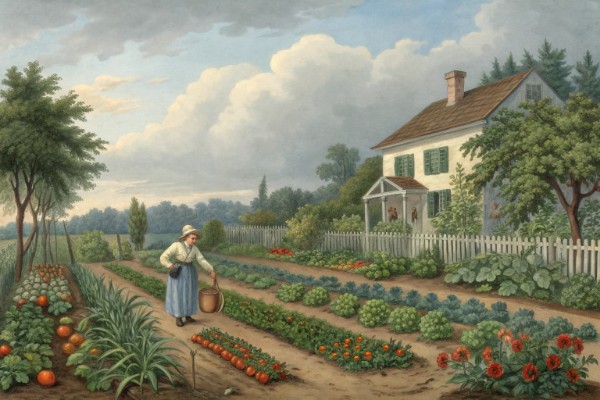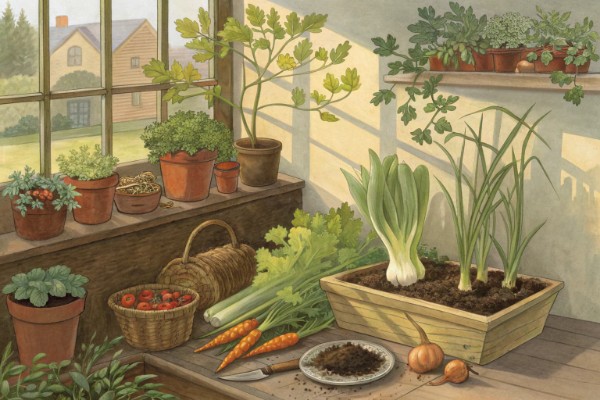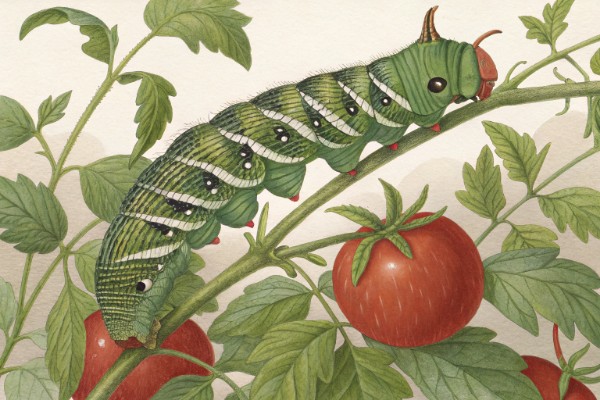Plant Death: Causes and Fixes for Failing Vegetable Gardens

Plant Death
If you're witnessing plant death among your vegetables, check your soil drainage, scan for sneaky pests, and ease up on watering schedules. Many gardeners mistake wilted foliage for thirst; ironically, roots often drown from kindness. Understanding why your veggies wilt, yellow, or collapse can revive your garden and keep your dinner plate vibrant—let's uncover what's killing your plants and bring them back to life.
Why Your Vegetables Are Dying: Common Issues & Practical Fixes
One morning last summer, I strolled out to my raised beds with a fresh cup of coffee, anticipating the sight of plush zucchini leaves soaking in the sun. Instead, tragedy—yellowing foliage and dreadful wilt announced a familiar foe: plant death.
Let's unpack what may be killing your vegetable plants and find straightforward remedies to revive your garden's vitality.
1. Overwatering: Too Much Love Can Kill
I'll confess, early in my gardening days, I overwatered mercilessly. The logic seemed solid—plants need water, right?
Turns out, too much moisture drowns plant roots, suffocating them from necessary oxygen.
- Symptoms: yellow leaves, mushy stems, root rot.
- Solution: Water deeply once or twice weekly, letting soil dry slightly between soakings. Stick your finger two inches (5 cm) into the soil—feel moisture? Wait a day or two before watering again.
2. Underwatering: Thirsty Plants Struggle Too
On the flip side, neglect leaves veggies parched and gasping. Last August, when temperatures hit 95°F (35°C), my tomatoes shriveled almost overnight.
- Symptoms: wilted leaves, crispy edges, dry soil.
- Solution: Establish routine, consistent watering and mulching garden beds deeply. I now layer three inches (7.5 cm) of straw or leaf mulch around plants—it locks in moisture beautifully.
3. Nutrient Deficiency: Feed Your Soil, Not Just the Plants
Plants draw life directly from your soil; poor soil means poor growth and eventual demise. I once watched beet seedlings stall at three inches (7.5 cm)—a classic sign of malnutrition.
- Symptoms: stunted growth, pale or discolored foliage, low yields.
- Solution: Amend your garden beds with rich compost annually, supplement periodically with organic fertilizers like fish meal or seaweed extract. Healthy, nourished soil prevents nutrient starvation before it's too late.
"Healthy soil can sustain plant life for generations, but depleted soil is a ticking clock—within a season or two, plants inevitably succumb to decline."
4. Pest Invasions and Diseases: Act Fast, Save Your Veggies
Aphids, caterpillars, fungal diseases—each season, nature tosses me a new challenge. One year, cucumber beetles devoured my cucumbers overnight, teaching me the value of vigilance.
- Symptoms: holes in leaves, visible insects, moldy spots, browned leaf margins.
- Solution: Scout your garden regularly, handpick pests early, apply organic treatments like neem oil or soap sprays judiciously. For fungal issues, prune infected foliage immediately and practice crop rotation annually.
5. Improper Sunlight: Veggies are Solar-Powered Machines
Shade-loving veggies like spinach have their merits, but most vegetables crave at least six hours of direct sunlight daily. I once tried to outsmart nature, planting peppers under partial shade—the result were sad, leggy plants.
- Symptoms: leggy stems, thin leaves, poor fruiting.
- Solution: Move sun-seeking crops to brighter spots or prune nearby branches to maximize sunlight exposure, ensuring at least 6-8 hours of direct sun daily.
"For vibrant vegetable gardens, sunlight isn't optional—it's oxygen."
6. Temperature Extremes: Know Your Veggie Limits
Extreme heat or cold can swiftly end a promising garden season. Last fall, an unexpected frost dropped temperatures to 28°F (-2°C), swiftly ending my quest for late-season basil pesto.
- Symptoms: spotted or blackened leaves, wilted plants overnight.
- Solution: Know your area's frost dates. Use cold frames or floating row covers to extend seasons; shade cloth and adequate watering mitigate heat stress during blistering summer spells.
Understanding common causes behind vegetable plant death equips you with practical solutions and fewer garden tragedies. Learn from your mistakes—I've had plenty—and your gardening skills will flourish alongside your veggies.
Cheatsheet: Spot & Fix Veggie Patch Losses Fast
🌱 Top Causes
- Overwatering: Root rot, yellow leaves, fungus gnats
- Underwatering: Wilting, crispy leaves
- Poor drainage: Stunted roots, sour smell
- Pests: Chewed leaves, holes, sticky residue
- Disease: Spots, mildew, misshapen fruit
- Lack of nutrients: Pale leaves, slow growth
- Wrong light: Leggy, weak plants (too little); scorched leaves (too much)
- Improper spacing: Disease spread, weak growth
- Extreme temps: Above 86°F (30°C) or below 45°F (7°C) stress most veggies
🔧 Tools and Products You'll Need
- Well-sharpened pruners
- Moisture meter (avoid guessing water needs)
- Hand trowel
- Compost & organic fertilizer
- Mulch (straw, bark, or leaf mold)
- Neem oil (pest/disease control)
- Floating row cover (frost/insect protection)
📝 Fast Fixes
- Assess: Check soil moisture at root depth. Inspect leaves, stems, and fruit for damage or color changes.
- Improve drainage: Loosen soil, add compost, raise beds if water pools.
- Balance water: Water only when top 2" (5 cm) dry. Deep soak early morning.
- Feed: Apply slow-release organic fertilizer every 4-6 weeks.
- Control pests: Remove by hand; spray neem oil if needed. Install row covers for insects.
- Prune: Remove diseased, dead, or overcrowded growth.
- Adjust spacing: Thin seedlings as per seed packet guidelines.
- Protect from heat/frost: Use mulch for roots; shade cloth or covers as needed.
🥕 Boost Success
- 80% of veggie failures: watering issues
- Rotating crops yearly slashes soil-borne disease risk
- Homegrown vegetables deliver 2x more nutrients than grocery shelf produce
- Gardening lowers stress hormones by 20%
Frequently Asked Questions about Preventing and Addressing Plant Death in Your Vegetable Garden
Why are vegetable leaves turning yellow, and what action is required?
Yellowing leaves typically signal nutrient deficiency, overwatering, or inadequate drainage. First, inspect soil moisture levels and ensure proper drainage. Next, apply an organic fertilizer rich in nitrogen if nutrient depletion seems evident. Regularly check soil conditions to restore healthy growth and prevent further plant death.
What causes seedlings to wilt soon after sprouting?
Wilting seedlings usually indicate a problem known as damping-off disease, a fungal issue triggered by overly wet conditions or excessive humidity. Adjust watering practices by maintaining moist but not saturated soil and improving airflow around seedlings. Use sterile seed-starting mixes and containers to effectively prevent this frequent cause of early plant death.
Can excessive heat be responsible for dying vegetable plants?
Yes, extreme heat significantly stresses vegetable plants, leading to rapid wilting and eventual plant death. Temperatures above 90°F (32°C) can severely disrupt normal plant functions. Apply mulch generously, install shade cloth to moderate temperature extremes, and provide consistent, deep watering early morning or late evening to counteract heat-induced stress.
How does improper spacing between vegetable plants influence plant health?
Inadequate spacing between plants limits airflow, raises humidity, and escalates competition for nutrients, sunlight, and water. These conditions promote diseases and pests, ultimately resulting in declining health and increased plant death. Maintain recommended spacing guidelines found on seed packets or plant labels, promoting stronger, healthier vegetable growth.
Are pests directly responsible for plant death in vegetable gardens?
Pests including aphids, caterpillars, and beetles actively consume plant tissues and transmit diseases, significantly weakening plants and potentially causing plant death. Vigilantly monitor plants, encourage beneficial insects by planting companion flowers, and address infestations promptly using organic or natural pest control methods to safeguard your vegetable crops.
Does inconsistent watering lead to plant death?
Inconsistent watering stresses plant roots and destabilizes growth, often resulting in chronic dehydration or waterlogging, causing eventual plant death. Establish a routine watering schedule adapted to your climate, ensuring moist but well-drained soil. Typically, vegetables require approximately 1–2 inches (2.5–5 cm) of water weekly, ideally divided into two or three deep watering sessions.
How can fungal and bacterial diseases be minimized to prevent plant death?
Fungal and bacterial diseases flourish under humid or crowded conditions. To minimize these infections, space plants properly, prune affected areas promptly, sterilize garden tools regularly, water at soil level rather than overhead, and avoid handling plants when wet. Applying preventive organic fungicides or bactericides can further decrease disease risks and reduce plant death.
Plant Death isn’t a mystery—it's a message. Your garden talks, and sometimes it screams. Too much water, not enough sun, starving roots, or a soil that’s lost its soul—these are the usual suspects. Pay attention to soil health, rotate crops, and don’t forget the power of companion planting to keep pests and disease in check. If you’re watching your tomatoes wilt or your beans go yellow, check for root rot, nutrient gaps, or overzealous watering. Sometimes, it’s just the life cycle running its course—plants aren’t meant to last forever. But with sharp observation and a willingness to adapt, you can turn plant death into a lesson, not a loss. Keep your tools clean, your soil alive, and your eyes open. The reward? A garden that keeps giving, season after season.
Find out which plants will thrive in your garden!
Answer a few fun questions and get custom plant recommendations perfect for your space. Let’s grow something amazing together!

start your season


